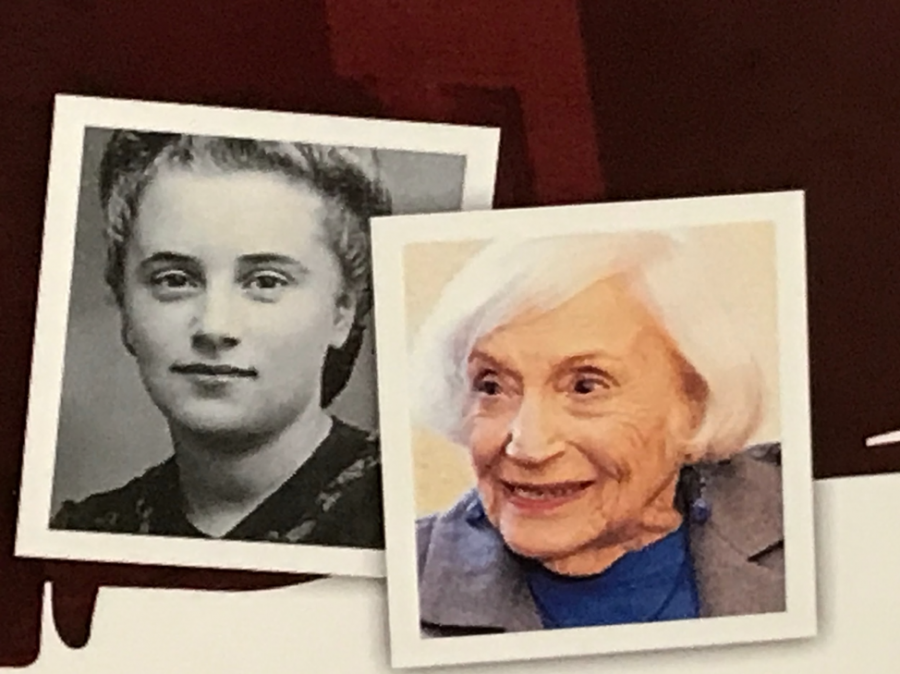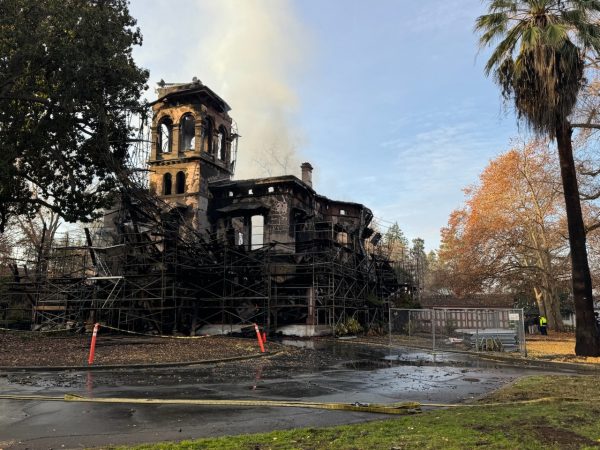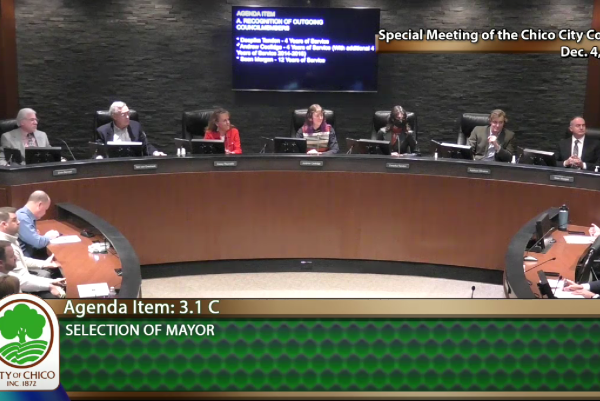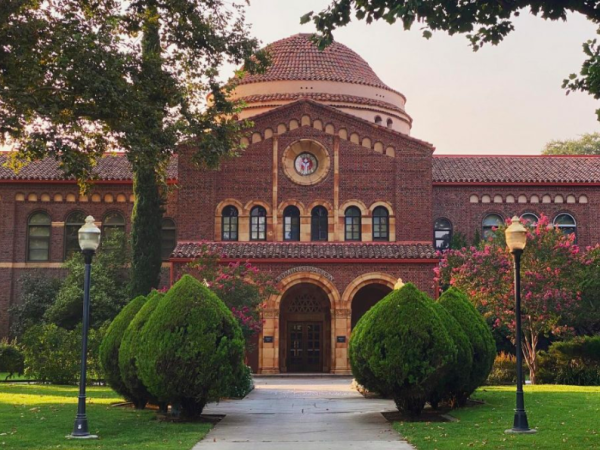French-Jewish Holocaust survivor inspires Chico audience
As a 99-year-old lady standing less than five feet tall, Marthe Cohn doesn’t bestow a very imposing figure. But the impact she made on the hearts and minds of those in attendance at the Performing Arts Center on March 3 can only be matched by the impact of her resistance efforts in Nazi-Occupied Europe over 70 years ago.
“My students, I think they were especially amazed by her heroism and learning about someone who had been an actor in history was probably the most amazing thing for them,” Professor Jed Wyrick of the Comparative Religion and Humanities Department said.
Her story consisted of espionage, tragedy, heroism, fascination and individual willpower that affected the course of the world.
Cohn enlisted in the french military after Paris was liberated by the allies in August 1944. Her illustrious collection of french military medals including the Legion of Honor, the French Cross and the Medal of the Nation’s Gratitude were on display during the event. At the age of 80, Cohn was also awarded France’s highest military honor, the Military Medal, the same one given to Winston Churchill.
Cohn was born April 1920 as Marthe Hoffnung in Metz, the capital of the Lorraine region, where a separate German dialect called “high German” was spoken. This is significant because the French and the Germans did not typically speak each other’s languages due to the animosity between the two countries. But since Lorraine had swapped hands between France and Germany after many wars, both languages were taught. As a bilingual woman, Cohn had a distinct advantage in being a secret agent.
During the outbreak of World War II, Cohn and her family moved away from the German border to the town of Poitier, southwest of Paris. Although the Hoffnungs were devout Orthodox Jews, they mixed easily with their gentile neighbors. When France was conquered and the Nazi puppet government of Vichy France was established, Poitier was no longer safe.
Cohn and her family hid Jews who did not have proper documentation and her former fiancé Jacques was actively involved in resistance maneuvers. The Gestapo arrested her sister Stephanie on June 17, 1942, and her father was incarcerated shortly after. When her father was soon released, the Hoffnung family managed to escape using false papers that did not identify them as Jews. Stephanie was eventually deported to Auschwitz.
Cohn continued her nursing studies in Marseille and occasionally left to rendezvous with Jacques. During one brief meeting, Jacques was on the run for an act that led to the murder of a Nazi collaborator. Cohn begged her fiance to stay in hiding and escape with her, but Jacques needed to go fetch his brother and a couple of friends from the town of Poitiers.
“And I told him ‘you cannot go back to Poitiers. You have to immediately escape and go south and go to Spain and I will join you.’ But he said he has to go back to his family in Poitiers and that he would leave with his brother as soon as he can,” Cohn said.
Jacques promised to write Cohn everyday. After three letters arrived, the fourth one never came. Cohn soon learned that Jacques had been arrested along with his brother and several friends. He was tried and subsequently executed for his resistance activities.
Broken-hearted, Cohn returned to Marseilles, graduated from her nursing studies and then moved to Paris to work for a registry. She would remain until the allies liberated France.
“When we heard on the radio that the troops were entering Paris, all the church bells started ringing and we opened our windows and we all sang the Marseillaise,” Cohn said.
After she enlisted and her commanding officer learned that she spoke fluent German, he recruited her to join army intelligence.
“I was introduced to Colonel Bouvet,” Cohn said “He told me he needs me to interrogate people, to know what’s going on, to know the strategy of the German, to know if they are retreating or not retreating and how many people are there.”
After interviewing Nazi POWs and obtaining information, Cohn was tasked with crossing the border from Switzerland into Germany behind the Siegfried Line. As a spy, her cover story was that of a German nurse wondering what happened to her Nazi fiance. One day, when Cohn came across a group of retreating German soldiers, she stuck to her false identity despite her absolute terror. While walking with them, a Schutzstaffel noncommissioned officer was bragging about his exploits on the Eastern Front.
“He was raving about the Poles and Jews and how many he killed,” Cohn said.
Suddenly, that same officer collapsed from injuries.
“He had been wounded, and he came back from the hospital, and as we walked, he fainted, so I was a good German nurse. I took care of him,” Cohn said.
From this SS soldier, Cohn was able to find out exactly what was happening on the Nazi front lines. With the help of a Swiss farming family, Cohn was able to make it back to the Allies in France to transmit her report. After one more mission into Germany, she reported back with something extraordinary.
With Cohn’s help, the allies found out the Nazis completely abandoned the Siegfried Line. The information Cohn uncovered helped to shorten the Allied effort to defeat the Nazis and saved countless lives.
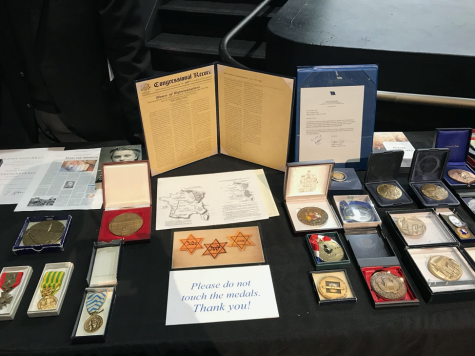
In 2014, Cohn was awarded her final medal, the VerdienstKreuz, the Order of Merit of Germany, for saving German lives by shortening the war.
“If you save one life, you save the world; and that’s biblical,” Marthe’s husband Major Cohn said.
One individual’s act of bravery and compassion can make an immense difference in the world. Cohn exemplified these traits heroically.
Grayson can be reached at: [email protected] or through Twitter @EdgemonGrayson



